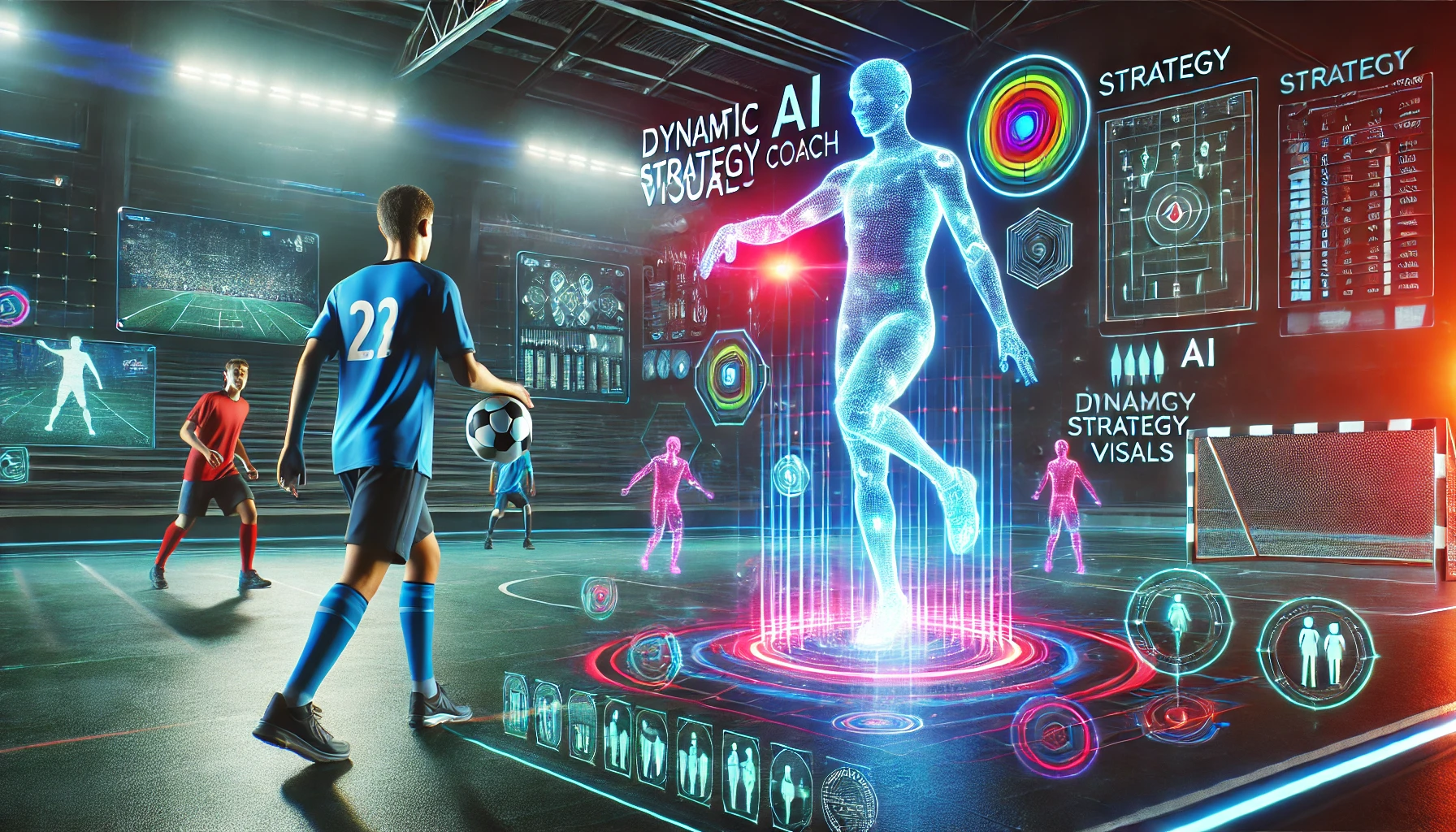AI Coaching in Sports Games: Revolutionizing the Way We Play and Train
In recent years, artificial intelligence (AI) has made waves across industries, from healthcare to finance. The sports world has not been left untouched, with AI coaching emerging as a transformative force. AI coaching, particularly in sports games, is reshaping how players train, strategize, and improve. By leveraging advanced algorithms and data analytics, AI is taking coaching beyond human limits, offering unprecedented insights and personalized training regimens. But what exactly is AI coaching in sports games, and how is it changing the game? Let’s dive in.

What is AI Coaching?
AI coaching uses machine learning algorithms and data analytics to analyze player performance, provide feedback, and design personalized strategies for improvement. In sports games, this technology integrates seamlessly into gaming platforms, acting as a virtual coach that evaluates in-game actions, identifies strengths and weaknesses, and offers real-time advice.
For instance, in soccer simulation games, an AI coach can analyze your passing accuracy, shot selection, and defensive positioning, providing tailored drills to enhance your skills. Similarly, in basketball games, it can suggest optimal plays based on your tendencies and in-game statistics.
The Core Benefits of AI Coaching
Personalization Unlike traditional coaching methods that rely on generalized advice, AI coaching delivers highly specific, data-driven feedback. Every player receives unique guidance tailored to their style and areas for improvement.
Real-Time Feedback With AI, players no longer need to wait for post-game analysis. Real-time feedback ensures immediate corrections, helping players adapt quickly and improve during gameplay.
Accessibility AI coaching makes expert-level training accessible to all. Whether you're a casual gamer or a competitive athlete, AI provides valuable insights that were once exclusive to elite coaching setups.
Continuous Learning AI systems learn from players over time, evolving their advice as the player improves. This dynamic learning process ensures that coaching remains relevant and effective.
AI Coaching in Popular Sports Games
Several major sports game franchises have begun incorporating AI coaching features:
FIFA: Offers tactical analysis, suggesting formations and playstyles based on the player's tendencies and in-game performance.
NBA 2K: Provides detailed breakdowns of shooting mechanics, defensive strategies, and playmaking abilities.
Madden NFL: Uses AI to recommend play-calling strategies, helping players optimize their offense and defense.
These games use AI to make players feel like they’re working with a personal trainer, bridging the gap between gaming and real-world athletic training.
AI Coaching Beyond Virtual Games
While AI coaching in video games is impressive, its potential extends to real-world applications. Wearable devices, like smartwatches and fitness trackers, already collect data on heart rate, movement, and performance. When paired with AI, these tools can provide athletes with actionable insights, bridging the gap between virtual and physical training.
For example, a tennis player could use an AI-enabled smartwatch to analyze their swing mechanics and receive recommendations for improvement. Similarly, a soccer player might get tips on sprinting efficiency and stamina management during training sessions.
Challenges and Ethical Considerations
As with any technology, AI coaching comes with challenges:
Data Privacy: The extensive data collection required for AI coaching raises concerns about player privacy and data security.
Over-Reliance: There’s a risk that players may become overly reliant on AI, potentially neglecting the human intuition and creativity that define sports.
Accessibility Gap: While AI coaching is more accessible than traditional methods, high-quality systems may still be out of reach for players in underprivileged regions.
The Future of AI Coaching in Sports Games
AI coaching is still in its infancy, but its future is bright. As technology advances, we can expect even more sophisticated coaching systems that blur the line between gaming and real-life sports training. Virtual reality (VR) and augmented reality (AR) could further enhance the experience, immersing players in training environments that mimic real-world conditions.
Additionally, AI coaching could foster inclusivity by helping individuals with disabilities participate in sports games and real-life activities, offering customized strategies that cater to their needs.
Conclusion
AI coaching is more than just a technological trend—it’s a game-changer. By integrating advanced analytics and personalized feedback into sports games, AI is empowering players to achieve their full potential. Whether you’re a gamer looking to dominate your favorite title or an athlete seeking to improve in real life, AI coaching offers tools and insights that can transform your approach.
As we move forward, one thing is clear: AI coaching isn’t just shaping the future of sports games—it’s shaping the future of sports itself.